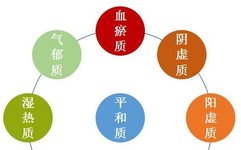Understanding Your TCM Constitution Type
The TCM constitution refers to the relatively stable characteristics formed during the life process of the human body, based on innate endowment and acquired traits, encompassing morphological structure, physiological function, and psychological state. It represents the individual characteristics of the human body that adapt to the natural and social environment during growth and development. There … Read more









